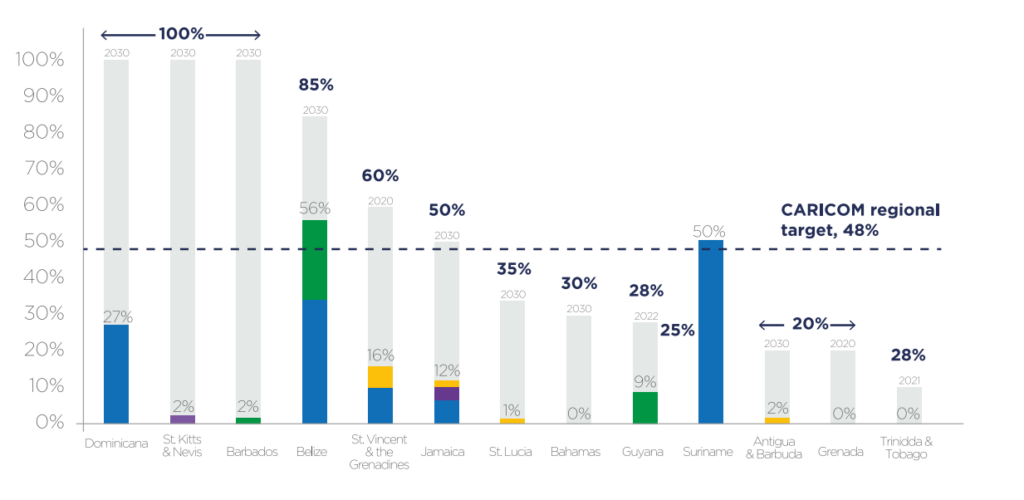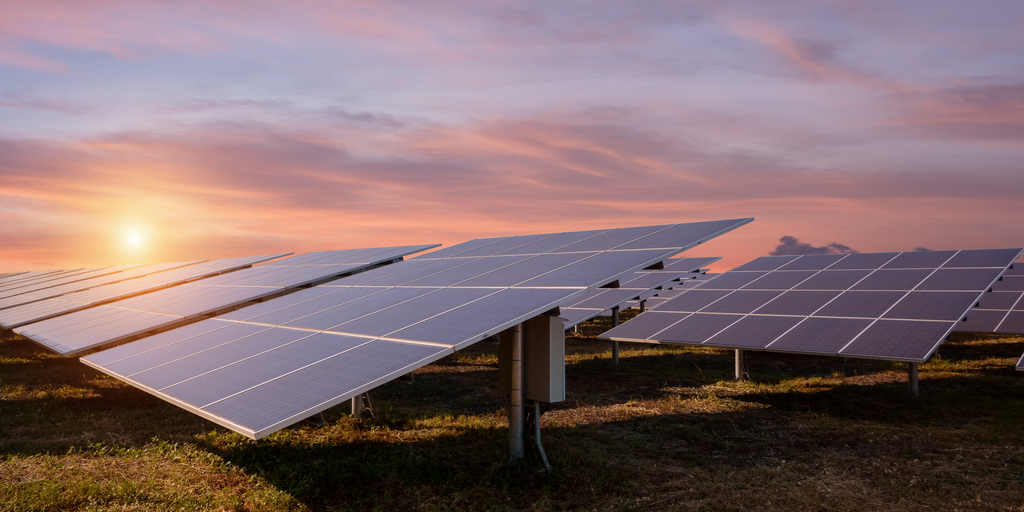COVID-19 reminds us of the importance of continually investing in energy efficiency and technologies to reach a sustainable energy matrix in the Caribbean.
Energy efficiency and sustainability are recurring issues that challenge the Caribbean energy sector. Prior to the COVID-19 pandemic, the energy sector has been vulnerable to the effects of climate change. The frequency and intensity of natural disasters have weakened the Caribbean capacity to recover. Climate change demands that the energy sector transition to clean energy technologies that are sustainable and reliable. Similarly, COVID-19 has accelerated the importance of investing in those technologies. The pandemic has triggered a global health crisis impacting the resilience and reliability of the energy sector. With volatility in oil prices and supply, the industry must be agile and adopt new business models for its operation of generation, transmission, and distribution, where customer engagement plays a vital role.
As a consequence of the measures implemented to limit the spread of the virus, Caribbean economies that are heavily dependent on tourism are facing financial limitations. Preliminary analysis conducted by the IDB estimates a reduction in GDP by between 11% point to 26% point relative to pre-crisis baseline in the case of the Bahamas slashing employment and remittances. The low economic activity and travel restrictions worsen the financial viability of the energy sector that is experiencing increased non-payment of electricity bills and a significant decline in energy demand from major industries. Therefore, with the recent shock in global oil prices and the continuous impact of covid-19 on Caribbean economies, the heavily dependent fossil fuel region needs to consider long-term investments towards green recovery, as discussed in our publication: Sustainable Energy Paths for the Caribbean.
The publication recommends that Caribbean leaders should set sustainable energy targets to achieve policy objectives, set standards to promote energy efficiency and resilience, establish regulatory frameworks that encourage investing in resilience energy systems as well as develop business models for sustainable energy investments to safeguards against variables such as hurricanes or COVID-19. Transitioning towards sustainable energy pathways by making long-term investments in energy efficiency (EE), renewable energy (RE), and energy resilience to achieve sustainability, the Caribbean can benefit from US$16 billion in net economic benefits over the next 20 years.
The decentralization of the energy sector requires redesigning the business model to invest in customer-centric technologies, as customers are demanding new technologies that are affordable, simple, efficient, and importantly accessible services. Thus, the new business models require the appropriation of policies, regulations, and processes consistent with the 21st-century technological landscape.
Investing in sustainable energy
Caribbean countries have high electricity costs, utilize energy inefficiently relative to Latin American countries and are susceptible to natural disasters like hurricanes. However, the Caribbean can benefit from lower electricity costs, improving competitiveness and productivity as well as reduce its dependency on oil imports and CO2 emissions by investing in sustainable energy measures.
Most Caribbean countries set national targets for energy efficiency, but there has been limited progress towards these targets. By investing in energy efficiency, the Caribbean stands to gain US$6.1 billion in economic benefits over the next 20 years. These investments will allow the Caribbean to make significant improvements towards its national targets, reduce its consumption, and improve operability across countries.
Progress Against Renewable Energy Targets in CARICOM

renewable energy target.
Source: UNFCCC 2016, Castalia 2019
The IDB is assisting Caribbean countries in advancing their clean energy agenda and more aggressively amid the pandemic. In the Bahamas, the IDB has approved a US$170 million Conditional Credit Line for Investment Project (CCLIP) to mass deploy utility-scale and distributed solar generation to improve the reliability and resilience, while rehabilitating critical infrastructure and promote the RE therefore, the Bahamas moves from their current RE position (0%). Similarly, in Barbados, the Sustainable Energy Investment Program (SMART Fund II) aims to increase RE and EE penetration by retrofitting government facilities and conducting RE and EE feasibility studies. In Jamaica, the IDB is assisting its government with the early adoption of electric vehicles and promoting RE investment by strengthening the institutional framework and ecosystem as well as putting the EVs on-site to assess feasibility and promote wide-scale adoption.
The analysis estimated that damages to the infrastructure and the cost to rebuild only account for 10 percent of the economic cost, while 90 percent of the economic cost is due to prolonged power outages. Disruptions from national disasters have increased the urgency to invest in energy resilience planning and technologies, such as reinforcing the network by adding biomass, geothermal, and hydro technologies, as well as facilitating the proliferation of electric vehicles. With optimal investments in RE and energy resilience, the Caribbean will save US$5.7 billion in generation costs and US$4.3 billion respectively over the next 20 years resulting in a reduction in fuel cost and CO2 emissions. Therefore, Caribbean countries need to assess the long-term economic benefit of investing in energy security and resilience.
Renewable energy to transform the energy system
Sustainable energy interventions in the region are turning out to be cheaper and cleaner due to increasing efficiencies in solar photovoltaic (PV), wind, battery storage, and renewable distributed generation. The uptake of sustainable energy measures is expected to increase significantly as the prices continue to decrease, according to our research.
The research posits that the improvement of the batteries’ storage technologies is also contributing to the transition toward more sustainable energy for the Caribbean. For instance, the lithium-ion batteries are expected to decrease by 43 percent from current prices by 2023, reaching US$100 per kWh. This technology provides system stability, allowing for higher levels of variable RE such as solar PV and wind.
For many Caribbean countries solar and wind power along with battery storage technologies can provide, during daytime hours, reliable power for up to 14 hours a day at an average of US$0.17 per kWh. Yet, the need for dispatchable power and energy at night, along with the use of indigenous hydrocarbons, limits the economically viable uptake of renewable generation.
In Caribbean countries with suitable geothermal and hydro resources, 100% renewable power is economically feasible. However, for other countries within the region that lack dispatchable for those renewable options, may choose to use natural gas to achieve lower emissions and cleaner power at costs that are affordable, at least until battery storage becomes competitive for sustained night-time supply.


A very informative article! Renewable energy is the best way to go.